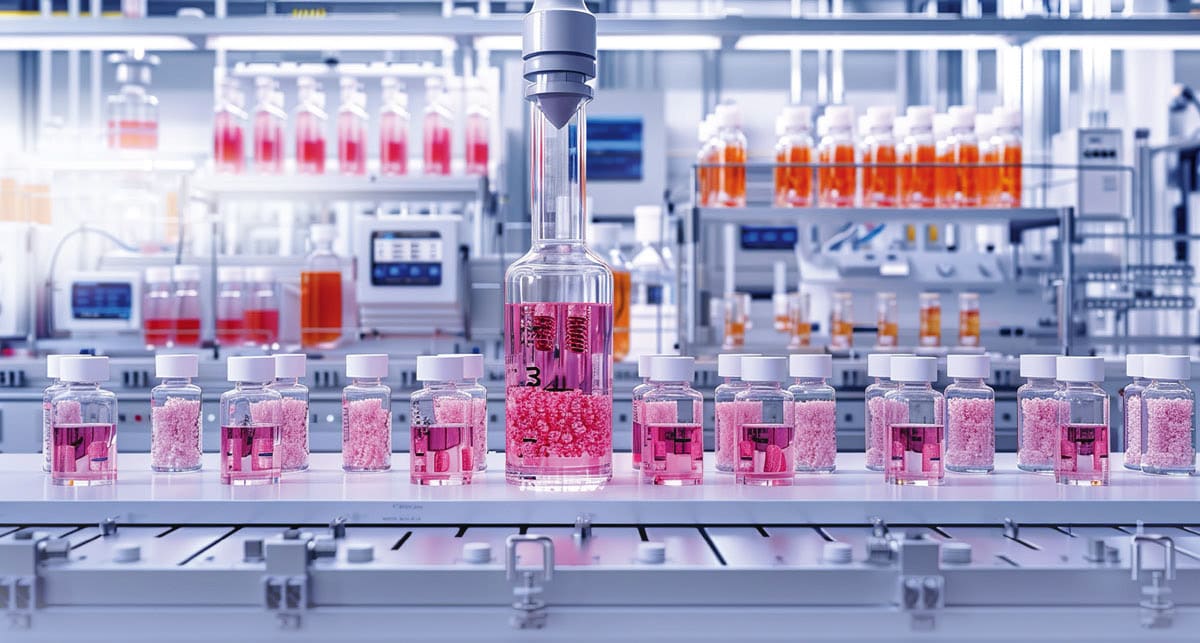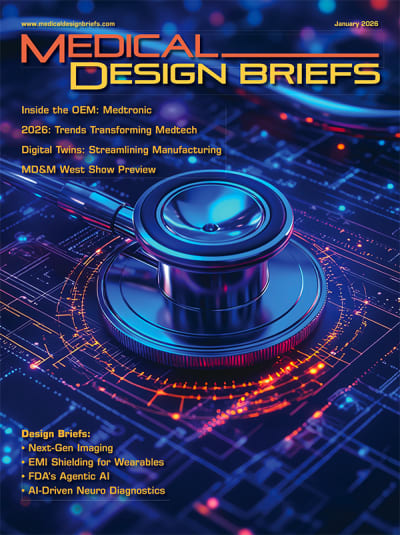
Much has been discussed about the potential of artificial intelligence (AI) to transform the biopharma industry as it becomes integrated into research and discovery workflows. AI’s capability to process enormous datasets and detect patterns that might elude human researchers can significantly speed up drug development, lower costs, and improve the accuracy of personalized medicine.
AI’s Wide Role in Biopharma Research
At the core of this promise is the potential to analyze and model complex biological data at unprecedented scale and speed. Traditional drug discovery processes, which often take over a decade and cost billions of dollars, are being optimized through AI’s capabilities in four major areas — drug target identification, compound screening, predictive modeling, and personalized medicine.
Drug Target Identification. By analyzing extensive genetic and proteomic data, AI can pinpoint potential drug targets with a speed and precision that surpasses traditional methods. Machine learning models excel at predicting interactions between various genes and proteins — spotlighting the most promising targets for research.
Compound Screening. AI plays an important role in managing the immense data sets generated by high-throughput screening techniques. These screenings are essential for identifying potential drug candidates. AI efficiently sifts through these data to predict the efficacy and safety of numerous compounds, ranking those with the highest likelihood of success.
Predictive Modeling. AI-driven models can accurately forecast a drug’s behavior in the human body by considering factors such as absorption, distribution, metabolism, and excretion (ADME). These predictive models enable researchers to design compounds with optimal pharmacokinetic properties, thereby reducing the risk of failures in the later stages of development.
Personalized Medicine. By analyzing patient-specific data, including genetic information, medical history, and lifestyle factors, AI holds the promise of tailored treatment plans. This personalized approach ensures that patients receive therapies suited to their unique needs, which improves outcomes and minimizes adverse effects.
Bioinformatics Challenges and Opportunities
Despite its potential, incorporating AI into biopharmaceutical R&D workflows faces several challenges, especially in the realm of bioinformatics.
Effectively functioning AI algorithms depend on high-quality structured and standardized data. Inconsistent or incomplete datasets can completely undermine the accuracy of predictions and the reliability of results. Therefore, the biopharma industry must invest in robust data curation and standardization practices before it can fully harness the benefits of AI.
Integrating AI into biopharma workflows requires interdisciplinary collaboration between biologists, chemists, data scientists, IT, and AI experts. Effective collaboration ensures that AI models are informed by comprehensive domain expertise and the technical know-how.
If AI is used downstream from R&D where patients are involved, AI-generated insights must adhere to strict regulatory standards to ensure the safety of the patient and the integrity of the data. Developing AI models that comply with these regulations involves navigating complex regulatory landscapes to ensure transparency in AI decision-making processes. Compliance is critical to maintaining acceptance, credibility, and trust with AI in the biopharma industry.
As R&D workflows are impacted by the rise of AI, new ethical considerations are surfacing related to data privacy, consent, and bias. Ensuring that AI systems are designed and implemented ethically is crucial for maintaining public trust and achieving equitable healthcare outcomes. Addressing these ethical concerns involves implementing measures to protect patient data, obtain informed consent, and reduce biases in AI models.
Real-World Healthcare Applications
The successful integration of AI into biopharmaceutical workflows has already led to significant advancements in healthcare. And several real-world applications demonstrate AI’s potential to transform the industry. One of the best recent examples stems from the severe acute respiratory syndrome human coronavirus (SARS-hCOV) pandemic.
During the pandemic, AI played an important role in accelerating vaccine development. Companies like Moderna used AI to quickly identify mRNA sequences that could be used in potential vaccines. During the development process, AI-driven simulations and predictive models helped optimize the vaccine candidates, which significantly reduced the time required for development and approval. This vaccine development example not only showcased AI’s capability to handle vast and complex datasets, but also highlighted its potential to address urgent global health crises in a timely fashion. AI proved itself to be a game changer.
AI is also revolutionizing cancer research by enabling the analysis of large-scale genomic data. The ‘IBM Watson Oncology Platform’ uses AI to analyze patient data and recommends personalized treatment plans. This system has been used in clinical settings to support oncologists make more informed treatment decisions. The ability of AI to process and interpret vast amounts of genetic data allows for more accurate and individualized approaches for cancer treatment, which leads to improved patient outcomes.
In addition to facilitating new drug discoveries, AI algorithms are being used to repurpose new uses for existing drugs. This can significantly reduce therapeutic development timelines and costs. For instance, AI-driven analysis of electronic health records (EHRs) and biomedical literature mining has led to the identification of many existing drugs with potential efficacy against neurological diseases like Alzheimer’s and Parkinson’s. By repurposing known and approved compounds, the biopharma industry can expedite the delivery of effective treatments to patients.
AI is also improving the diagnosis of rare diseases by analyzing genetic data and identifying patterns associated with these conditions. Platforms like Face2Gene use facial recognition technology and AI to help clinicians diagnose rare genetic disorders based on facial features.
This technology expedites the diagnostic process and enables earlier intervention, which is critical for managing rare diseases. AI’s ability to uncover subtle genetic patterns and correlations that humans can easily miss, enhances the accuracy and speed of diagnoses, offering new hope to patients with rare conditions.
Takeaway
The integration of AI into biopharmaceutical workflows holds immense potential to transform the industry, enhancing research and discovery processes, and ultimately improving patient outcomes. By addressing bioinformatics challenges and leveraging AI’s capabilities in drug target identification, compound screening, predictive modeling, and personalized medicine, the biopharma industry can achieve remarkable advances in drug development and healthcare delivery.
Realizing this potential requires concerted efforts to ensure data quality, foster interdisciplinary collaboration, navigate regulatory landscapes, and address the ethical considerations. As the biopharmaceutical industry continues to embrace AI, it’s poised to unlock new possibilities in the fight against diseases and pave the way for a future where personalized, effective treatments are available to all.
The integration of AI in biopharmaceutical workflows is not just a technological advancement, but a paradigm shift that promises to completely revolutionize how we research, understand, and treat diseases. By harnessing the power of AI, we can accelerate the pace of scientific discovery, improve the efficiency of drug development, and bring hope to millions of patients worldwide.
References
- Esteva, A., Kuprel, B., Novoa, R. A., et al. (2017). Dermatologist-level classification of skin cancer with deep neural networks. Nature, 542 (7639), 115-118.
- J. T. Leek, & R. D. Peng (2015). Reproducible research can still be wrong: Adopting a prevention approach. PNAS, 112 (6), 1645-1646.
- Cornu H. (2023) “Machine learning to identify and prioritise drug targets.”
- Dymala K. (2023) “Revolutionizing Drug Development Through Artificial Intelligence, Machine Learning” Pharm Times.
- Zhang, L., Tan, J., Han, D., Zhu, H., and Zhou, X. (2017). “Artificial intelligence in drug design.” Scientific Reports, 7 (1), 2820.
- Chen, H., Engkvist, O., Wang, Y., Olivecrona, M., and Blaschke, T. (2018). “The rise of deep learning in drug discovery.” Drug Discovery Today, 23 (6), 1241-1250.
- Vamathevan, J., Clark, D., Czodrowski, P., et al. (2019). “Applications of machine learning in drug discovery and development.” Nature Reviews Drug Discovery, 18, 463-477.
- Walters, W. P., and Murcko, M. (2018). “Assessing the impact of generative AI on medicinal chemistry.” Nature Biotechnology, 36, 136-137.
- Silver, D., Huang, A., Maddison, C. J., et al. (2016). Mastering the game of Go with deep neural networks and tree search. Nature, 529 (7587), 484-489.
- “Artificial intelligence in drug discovery and development,” Drug Discov Today. 2021 Jan; 26 (1): 80–93.
- The Atomwise AIMS Program. AI is a viable alternative to high throughput screening: a 318-target study. Sci Rep 14, 7526 (2024).
- Topol, E. J. (2019). High-performance medicine: The convergence of human and artificial intelligence. Nature Medicine, 25 (1), 44-56.
- Ranganathan, P., Saha, D., and McBride, S. M. (2020). “Artificial intelligence in oncology: Path to implementation.” Cancer, 126 (20), 4753-4761.
- Beam, A. L., & Kohane, I. S. (2018). “Big data and machine learning in health care.” JAMA, 319 (13), 1317-1318.
This article was written by Christian Olsen, Associate VP and Industry Principal for Biologics at Dotmatics, Boston, MA. For more information, visit here .



